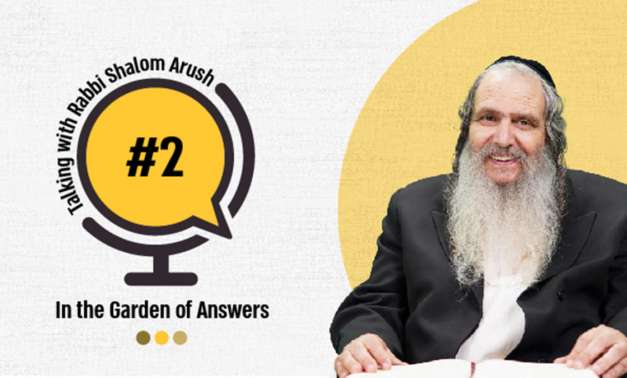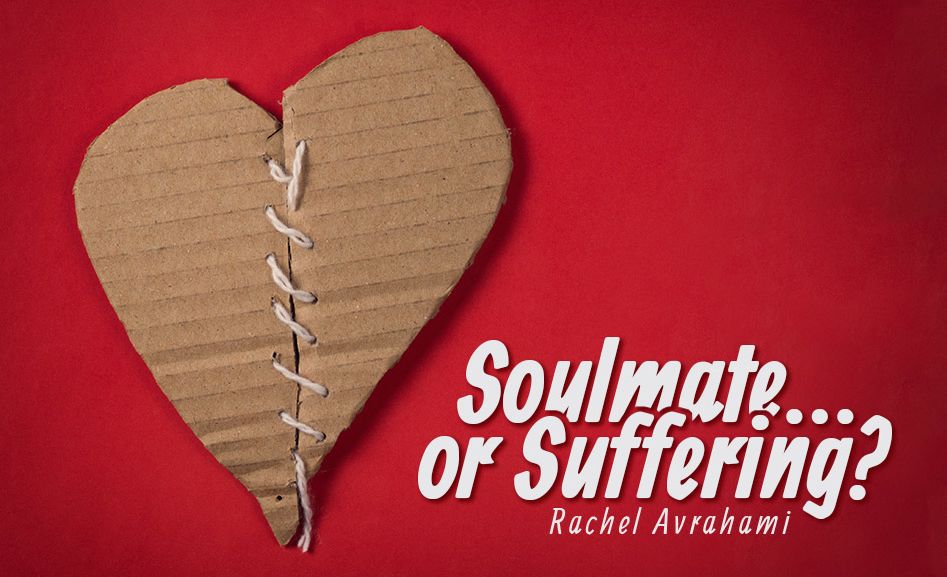
Sunlight
During one of my recent lectures, I told a group of married people that if our mouths were oceans overflowing with songs of praise, and our...

During one of my recent lectures, I told a group of married people that if our mouths were oceans overflowing with songs of praise, and our tongues were as numerous as all the waves approaching the earth’s shores, we could never sufficiently thank Hashem for the gift of a partner in life – our husband or wife.
Most of the group gaped back at me; it seemed that they had no idea why anyone should be so grateful for a spouse. I then asked the group if anyone present ever thanked Hashem for their husband or wife; no one raised their hand. On the contrary, quite a few of the people would tell you that they have nothing to be thankful for, since their marriage isn’t exactly a bed of roses, to say the least.
Think for a moment – you wouldn’t necessarily elicit the thanks of a five-year-old child with a flawless ten-carat diamond that’s worth ten million dollars. But, with a 50-cent lollipop, you’d become that child’s best friend. Why?
Children lack the spiritual awareness to appreciate the intrinsic value of anything that doesn’t grant them instant gratification. In like manner, a married person that lacks spiritual awareness doesn’t realize the inestimable worth of a true partner in life. Consider these three simple facts: First, a soul correction is the greatest achievement a person can attain in a lifetime. Second, marriage is the very best way to attain a soul correction. Third, our spouses are irreplaceable gems that are tailor-made to facilitate our soul corrections; as such, their worth makes the Hope Diamond look lackluster. With this in mind, would you still prefer a lollipop?
With Hashem’s help, this series will help us appreciate our spouses and the institution of the Jewish marriage, the keys to happiness in this world and in the next.
* * *
As Dean (Rosh Kollel) of the Chut Shel Chessed married men’s Rabbinical Seminary in Ashdod, I noticed an intriguing phenomenon: The best achievers were not necessarily the most intellectually-gifted students. Often, a brilliant student would daydream through entire study sessions with the million-mile-away look in his glassy eyes. These were the young men with marital difficulties; the pressures of problematic marriages monopolized their thought processes, leaving little room for the intricacies of Talmudic and rabbinic law. On the other hand, those students with no better than average native ability that enjoyed peaceful and gratifying relationships in the home were free to devote all their efforts into their studies.
Shalom Bayit, or peace in the home, is not only the key to success in Torah learning, it’s the key to success in any endeavor. By improving one’s marriage, one attains fulfillment, happiness, and maximization of personal potential.
When I realized that my students sorely lacked the basics of what constitutes a successful Jewish marriage, I instituted a weekly Kollel Vaad, namely, a three-hour group-study session – half lecture and half discussion – devoted solely to the subject of the Jewish marriage. Within weeks, the entire atmosphere of the kollel had dramatically improved; frowns became smiles, and daydreamers became razor-sharp achievers.
My lessons on the successful Jewish marriage were based on the principles that I had personally learned from my esteemed and beloved teacher and spiritual mentor, Rabbi Shalom Arush shlit’a, the Director of the Chut Shel Chessed Institutions, who received them from his teachers, in an unbroken chain from pupil to teacher going back to Reb Nosson of Breslov and to his teacher, our revered teacher and spiritual master, Rebbe Nachman of Breslov, of blessed and saintly memory.
The key to marital success is based on a principle brought forth in the Zohar, namely, that a husband resembles the sun and a wife resembles the moon. The moon shines only after sunlight reflects upon her.
A husband must illuminate a wife; otherwise, she’s doomed to spiritual and emotional darkness. For that reason, the unilateral initial responsibility for peace in the home is placed on the husband’s shoulders.
As a rabbinical counselor, I’ve noticed that nine out of ten couples come to their first counseling session with the attitude of, “First let the other side change, and then I’ll change.” By placing responsibility on the husband, our approach breaks the vicious cycle the marital dog chasing its own tale. Many husbands object to this seemingly unfair system, but I’ve seen it work in case after case. Hashem created the world with this inherent law that the sun illuminates the moon and a husband illuminates a wife. One can’t ignore inherent principles of creation.
With infinite thanks to Hashem and with the blessing and encouragement of Rav Shalom Arush shlit’a and the staff of Breslev Israel, Breslev’s teachings on the Jewish marriage is being introduced to the English reader for the first time. Naturally, the goblet influences the taste of the wine. I pray to Hashem that nothing in these essays will impair the exquisite flavor of Breslever thought and Hashem’s eternal truth, amen.







Tell us what you think!
Thank you for your comment!
It will be published after approval by the Editor.